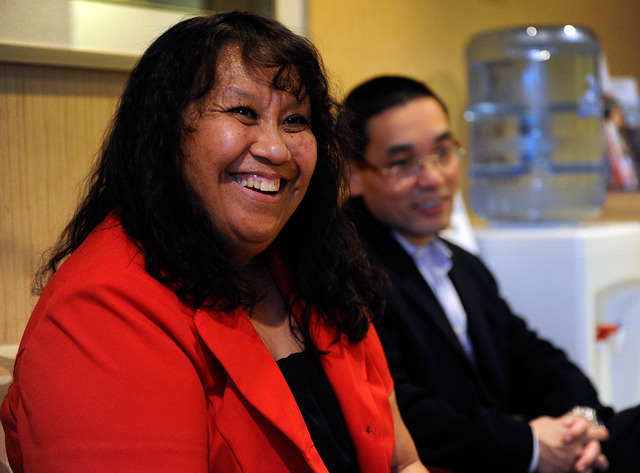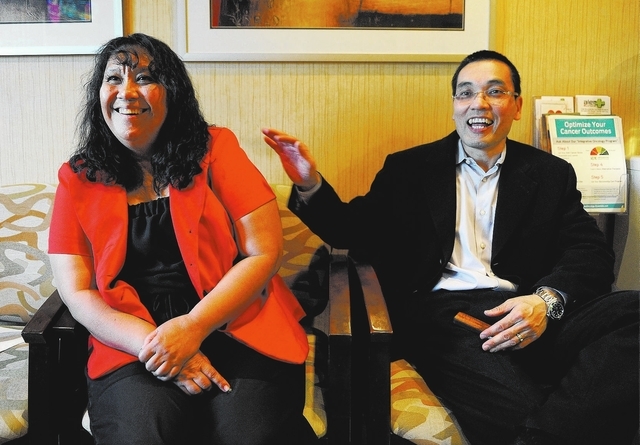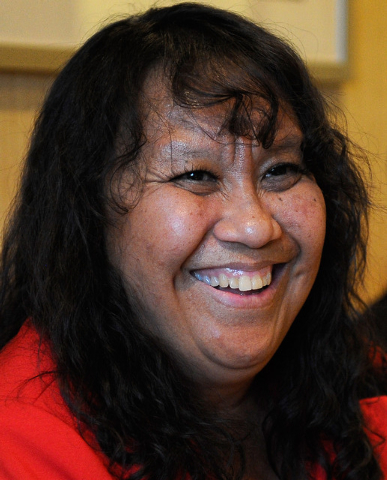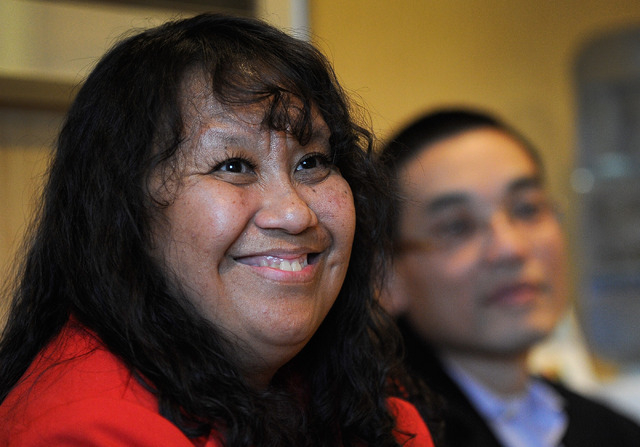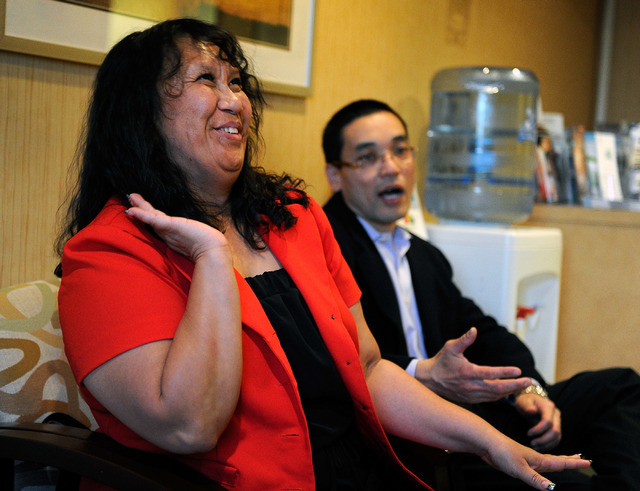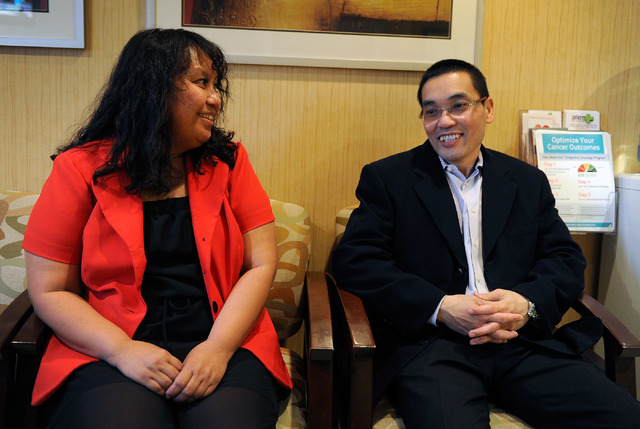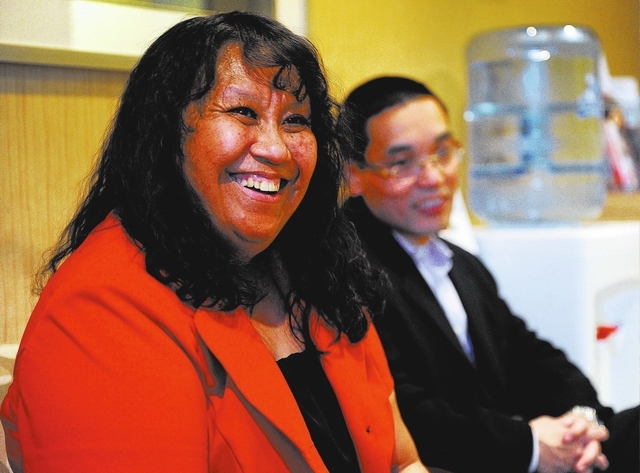Centennial Hills resident says early detection is key to kicking cancer
One morning in March last year, Centennial Hills resident Emelita Gerrard awoke to symptoms of vomiting and dizziness. Her symptoms worsened as the day progressed, so she called her husband to take her to a nearby clinic.
Gerrard was initially diagnosed with vertigo but was referred to a gynecologist for additional testing.
“I didn’t know it at the time, but my body was actually telling me to get your butt up and go to the doctor,” Gerrard said.
Following a blood test, results showed a low white blood cell count. Gerrard said she would menstruate all month with a few days’ break in between, but she did not think it was abnormal.
“I’ve had constant bleeding for about a year. I thought it was because I was getting up in age, and it was just part of the change,” Gerrard said, referring to menopause. “I’ve always had abnormal Pap smears and irregular periods.”
A few days later, Gerrard made an appointment to see a gynecologist, who informed her that she had a large tumor with lesions on the opening of her uterus, which explained why she bled so profusely.
“I was surprised that I was still walking,” Gerrard said. “I never thought something like this would happen to me.”
Gerrard was diagnosed with Stage 3 cervical cancer. She was referred to radiation therapy with 21st Century Oncology and radiation oncologist Tam Nguyen.
Nguyen said Stage 3 cervical cancer means that it has spread to the lower third of the vagina, and the tumor may have become large enough to block the ureters of the kidney.
“The fact that I had cancer didn’t really hit me until a couple of weeks before my surgery,” Gerrard said. “I kept positive the whole time. I’ve always been a strong person.”
Cervical cancer affects roughly 12,000 women in the United States each year, according to the Centers for Disease Control and Prevention.
In April, Gerrard underwent surgery to remove a cancerous lymph node. The following month, she then began receiving radiation and chemotherapy.
“My husband took it harder than I did. He had his own support group to help him,” Gerrard said. “I continued working through the whole process. It kept me distracted.”
Nguyen said women who are the most at risk are those in their early to late 20s or women older than 40.
“The most common cause is the human papillomavirus, which people can get through sexual contact,” Nguyen said. “But a lot of times, it’s just plain old bad luck. It can happen to anyone. Nuns have been known to get cervical cancer.”
Approximately 20 million people are infected with HPV. At least 50 percent of sexually active men and women get genital HPV infection at some point in their lives, according to the Southern Nevada Health District.
Nguyen said girls in their early teens should get the HPV vaccine to minimize their risk of getting cervical cancer. He also advises women to get regular Pap smears, which can detect cervical cancer before it becomes untreatable.
Signs of cervical cancer include abnormal vaginal bleeding, discharge or itching, according to Nguyen.
There are four stages of cervical cancer. Once a woman reaches Stage 4, she can manage the disease but can no longer treat it.
After four months of radiation and chemotherapy sessions, Gerrard was diagnosed tumor-free on Sept. 17.
Gerrard said she was hesitant to receive proper medical treatment because she did not want to spend money on what she thought were “unnecessary checkups.”
“If I could do it all over again, I would’ve gone to the checkups when I was supposed to. I could’ve prevented this.” Gerrard said. “Early detection is the key.”
Contact North Las Vegas and Centennial View reporter Sandy Lopez at slopez@viewnews.com or 702-383-4686.



